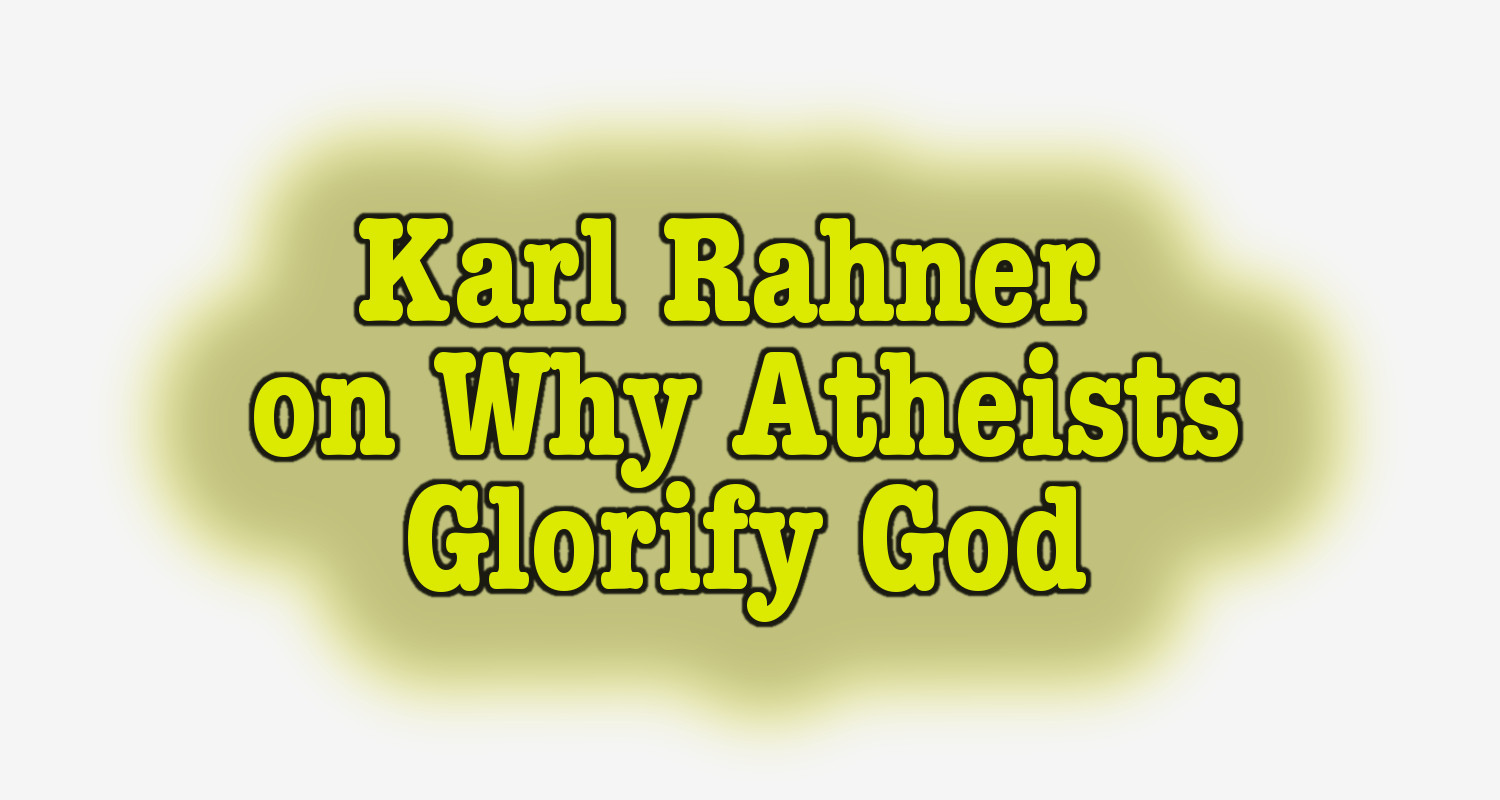
"Be merciful to those who doubt" ~ Jude 22 (NIV)
Atheists are treated poorly by many Christians today and I'm deeply disturbed by the damning statements I've often heard Christians say to atheists. Not long ago I witnessed an impassive Christian say to an atheist that they were going to hell unless they repented. When did the good news of Jesus Christ become the bad news of "turn or burn"? This is a dystopian gospel!
We must have compassion on atheists like the Apostles did as it says in Jude 22 "be merciful to those who doubt" and we may identify with atheists in both a positive and negative way. The first Christians were called atheists because they did not believe in the pagan gods and so Christians are positively united in their mission (missio dei) with protest atheists in our unbelief and protest against all false gods and idols in the world. Karl Barth said "It was no mere fabrication when the Early Church was accused by the world around it of atheism and it would have been wiser for its apologists not to have defended themselves so keenly against this charge." (CD II/1) [1] Christians are also negatively united with protest atheists too because of the problem of evil (theodicy)—i.e. if god exists then why does evil exist? How may god exist when there is evil and sin in the world? Is god powerless to stop the oppression of those who suffer? Is god complicit with the violence in the world? Jürgen Moltmann said there is no answer to why the problem of evil exists and Moltmann said "The best answer is [to the problem of evils is that], 'There is no God!' That is the best excuse for God. And then the whole question of why there is evil collapses. So only the presupposition that there is a God keeps the question of evil alive." Wolfhart Pannenberg has defended atheism by arguing that so long as evil exists in the world, atheists are justified in their protests, and so Christians may also join in these protests, and ask where is God in the midst of violence? Remember the latent protest atheism in Jesus' dying words: "My God, my God, why have you forsaken me?" (Mark 15:34)
In Karl Rahner's Foundation of the Christian Faith I found this helpful and encouraging word regarding protest atheists. Christians may have mercy on protest atheists because protest atheists keep the name of god alive in the world by protesting against god. Karl Barth once said that to truly become an atheist, one would need to completely leave Christian society and never think of Christianity ever again and so long as an atheist continues to live complicity within a Christian society then they have not left the bounds of the Christianity they protest against. In a way every protest of an atheist is also a statement that glorifies god by continuing talk about god, and to worship means to make something known as it truly exists, so in both the positive and negative protests of atheists, God becomes known through them. In a quote goes as Moltmann often cites "I don't like these atheists, they are always talking about god!" In the following quotation, Rahner expresses this same sentiment concisely:
We cannot evade this simple, although ambiguous fact by looking to a possible future and asking if a human race could ever exist in which the word “God” would absolutely disappear. . . . In any case, the word exists among us. It's existence is prolonged even by an atheist when he says that there is no God, and that something like God has no specifiable meaning; when he founds a museum without God, raises atheism to the level of a party dogma, and devises other things. In this way even the atheist is helping the word “God” to survive longer. If he wanted to avoid that, he would not only have to hope that this word would simply disappear in human existence and in the language of society. He would also have to contribute to this disappearance by keeping dead silence about it himself and not declaring himself an atheist. But how is he to do that if others, with whom he must speak and from whose language sphere he cannot completely withdraw, talk about God and are concerned about this word? [2]
Sources:
-
Karl Barth, Church Dogmatics: The Doctrine of God, Vol 2.1 (Study Edition #9). trans. G. W. Bromiley, T. F. Torrance, (London; New York: T&T Clark. 2004), p. 444.
- Karl Rahner, Foundations of the Christian Faith: An Introduction to the Idea of Christianity, trans. William V. Dych, (Seabury Press, 1978), p. 45
Related: Atheism, atheist, Jürgen Moltmann, Karl Barth, Karl Rahner, Karl Rahner SJ, protest atheism, Wolfhart Pannenberg



Leave a comment